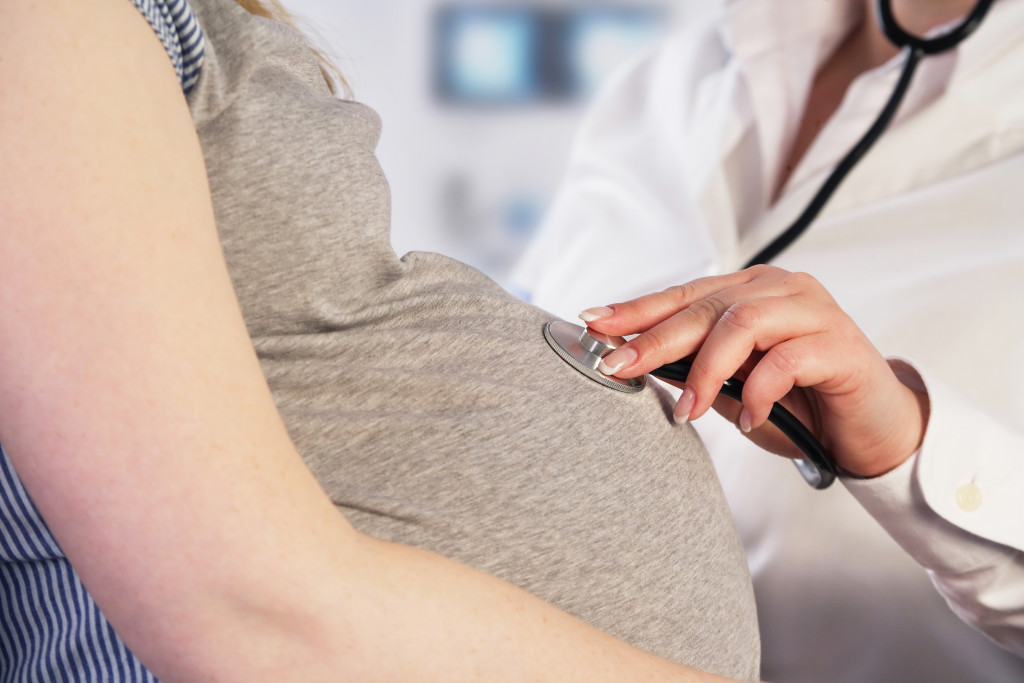Bringing a new life into the world is one of the most amazing things you can do. Not only do you get to experience the joys of parenthood, but you also get to watch your child grow and learn. Furthermore, studies have shown that having a baby can improve your health and well-being. So there are many good reasons to take the plunge into parenthood.
However, bearing a baby can be taxing on a woman’s body. That’s why before you even begin to think about having a baby, you must ensure that your body is in the best possible shape to do so. Here are some health issues to address before you start trying for a baby:
Are you at a healthy weight?
When considering starting a family, it is essential to ensure that you are at a healthy weight. Being overweight or obese can increase your risk of complications during pregnancy and childbirth, as well as health problems for your baby. If you are carrying extra weight, losing weight is essential before becoming pregnant. This will not only improve your health, but it will also give you the best chance of having a healthy pregnancy and baby.
There are many ways to lose weight, and your doctor can help you create a plan that is right for you. So, if you plan on starting a family, ensure you are at a healthy weight first. It will make all the difference for you and your child.
Do you have any chronic health conditions?
You might not think that your chronic health condition would affect your ability to have children, but it’s essential to consider all of the potential risks before deciding to become a parent. While many chronic conditions can be managed with medication and lifestyle changes, some conditions can lead to complications during pregnancy or childbirth.
For example, women with diabetes are at increased risk for gestational diabetes, and women with heart disease are more likely to experience preeclampsia. If you’re considering becoming pregnant, you must speak with your doctor about your chronic health condition and any potential risks. By doing so, you can make an informed decision about whether or not parenthood is right for you.
Do you have any STDs?
Having an STD can impact your ability to have children later on in life. Getting tested for STDs first is important if you’re considering starting a family. Some STDs, such as chlamydia and gonorrhea, can cause Pelvic Inflammatory Disease (PID). PID is a serious infection of the reproductive organs that can damage the fallopian tubes, ovaries, and uterus. This damage can lead to infertility or ectopic pregnancy. Other STDs, like HIV, can be passed from mother to child during pregnancy, childbirth, or breastfeeding.
There is no cure for HIV, but treatments available can significantly reduce the risk of transmission to an unborn child. If you are pregnant and have an STD, it’s important to tell your healthcare provider so they can provide the appropriate care and treatment. Getting tested for STDs is simple and easy, so there’s no excuse not to do it. Make sure you know your status before trying to conceive—it could make all the difference for you and your future family.
Are you taking any medications?
If you’re considering starting a family, taking stock of your current medications is important. Some medications can pose a risk to a developing fetus, and it’s important to be aware of these risks before becoming pregnant. Talk to your doctor about any medications you’re taking, and ask whether they could potentially impact your ability to have a healthy pregnancy.
It’s also important to know the risks of over-the-counter and herbal medications. Many of these products are not regulated by the FDA, and their safety during pregnancy has not been well studied. As a result, it’s always best to err on the side of caution and avoid taking any unnecessary risks with your pregnancy. Taking note of your medications can help ensure a healthy pregnancy for you and your baby.
Do you have bone or muscle conditions?

Knowing if you have bone or muscle conditions before thinking of bearing a baby is important. These conditions can impact not only your pregnancy but also the health of your baby.
For example, you may have an increased risk of miscarrying if you have scoliosis. While there is no cure for this specific condition, various effective treatments are available to help manage the symptoms. The Schroth method or treatment is a popular one. This approach includes physiotherapy, exercises, and wearing a corrective brace. This treatment has been proven to help improve the quality of life for people with scoliosis. By taking this method, you can help reduce the risk of miscarrying and ensure a healthy pregnancy.
Whatever your bone or muscle condition is, it’s essential that you first identify exactly what it is to find the best possible treatment for it and have a healthy pregnancy.
Before considering bearing a child, women must take stock of their health and address potential risks. This includes STDs, chronic health conditions, and bone or muscle conditions. You should also be aware of the effects of the medications that you might be taking. By doing so, you can help ensure a healthy pregnancy for both you and your baby. If you have any questions or concerns, speak with your doctor. They will be able to provide guidance and advice specific to your individual situation.

